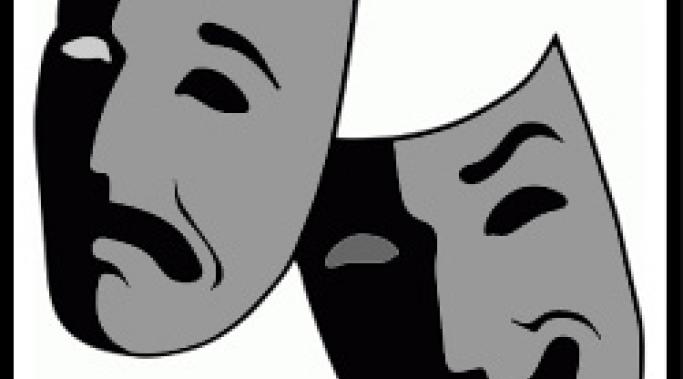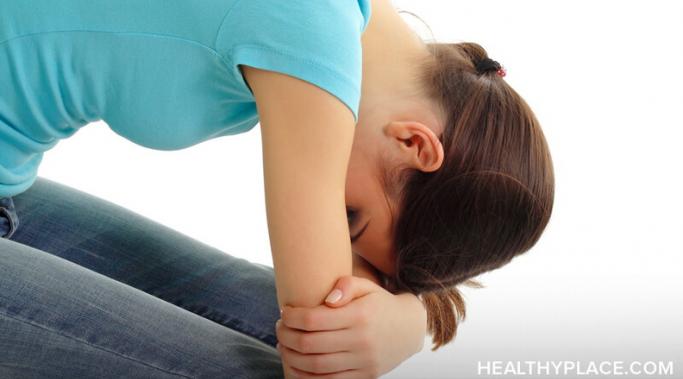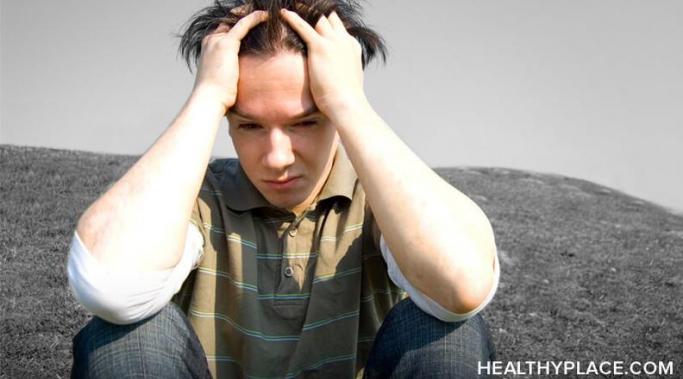Blogs
Have you seen the commercials for the new movie, 50-50? If not, here's a synopsis: Guy 1 tells Guy 2 that women will like him better when they find out that he has cancer. Cut to Guy 2 disclosing his cancer to Girl at the Bar. Now imagine what it would be like to use your mental illness as a pick-up line? Not really the stuff of one-liners, is it?
I touched on reconciling with relapse in my post, Flashbacks and The Fear of Relapse, but there is a lot more to mental health recovery than a single post can cover. An entire book spanning thousands of pages cannot describe the fear associated with relapse. Reconciling with the possibility of mental illness relapse is a difficult task.
Your body knows how anxious you are, it doesn't need you to think it, analyze or re-frame it. It knows in every cell. It knows secrets you've forgotten and it knows your future. What the body knows is how we move, sense and experience the world. Having an anxiety disorder means being disconnected from that sensate awareness.
Many days I don't want to get out to bed.
I am dealing with some difficult life issues right now, and of course the first thing I turn to is restricting my food intake in order to numb the pain and anxiety I am feeling.
There are some days that I feel as if this will go on forever. I contemplate my future and I can't see the light at the end of the eating disorder tunnel.
If you've been hanging out in the mental health corners of the web for longer than about a day, you've probably seen it - mental illness bashing. Mental illness, mental health, psychopharmacology, doctor, therapy and other-related-topics bashing.
It's extremely common and extremely hurtful and destructive. But it's the wild and woolly web, and that sort of nastiness happens in the jungle. Here are some tips for not letting other people's nastiness get to you.
I remember the day I met my friend, Sharon.* Bob had turned four the month prior, and I was--for the third time since then--preschool shopping.
Sharon was the owner/director of a small, private Montessori preschool (which I fell in love with almost immediately). She was confident, secure, and highly knowledgeable when it came to children. She had two of her own, in fact, and they were honor roll students and star athletes. In other words, she was everything I felt I wasn't. And she intimidated the Hell out of me.
Believe it or not, you truly can control your ADHD impulses and avoid being arrested for breaking and entering. All it takes is a few good thumps from the School of Hard Knocks to drive the lesson home, but even an air-headed dreamer such as myself can learn to avoid catastrophic lapses of impulse control.
How important is it to have motivation in addiction recovery? Addiction recovery is hard, and on rough days, where cravings or urges are high, it is important to separate the disorder's voice from the authentic/wise mind voice. On days where you are struggling in sobriety or mental health recovery, it is crucial to have intentions, motivations and goals to shift the perspective to help you through the struggles. It is important to realize the journey is all about the work, and every moment you are fighting for recovery matters.
Recovering from a serious mental illness can seem impossible, insurmountable at times, and frightening as well. Because I was diagnosed with bipolar disorder at the age of twelve, drugs and alcohol became a way in which I worked to forget about the diagnosis and self-medicate it.
This week I’m going to get a little more personal.
This past weekend I attended a business development workshop. Every six weeks or so I bravely head off for these two day intensives, knowing that at the end I will have gained some great ideas to apply in my work and also that I will be somewhat changed as a person when I leave. This past weekend was no different as I was reminded that once again, I am my own worst enemy.








